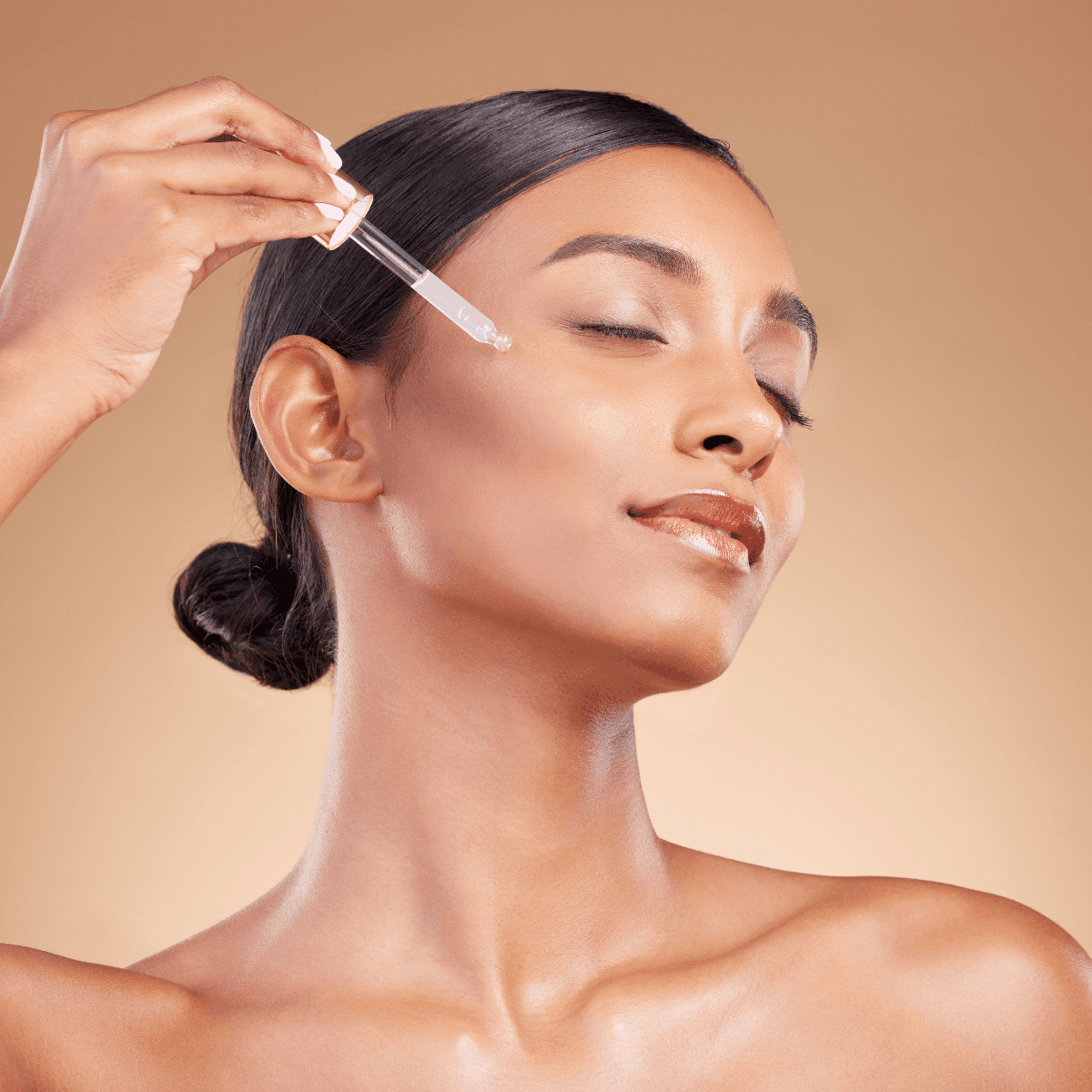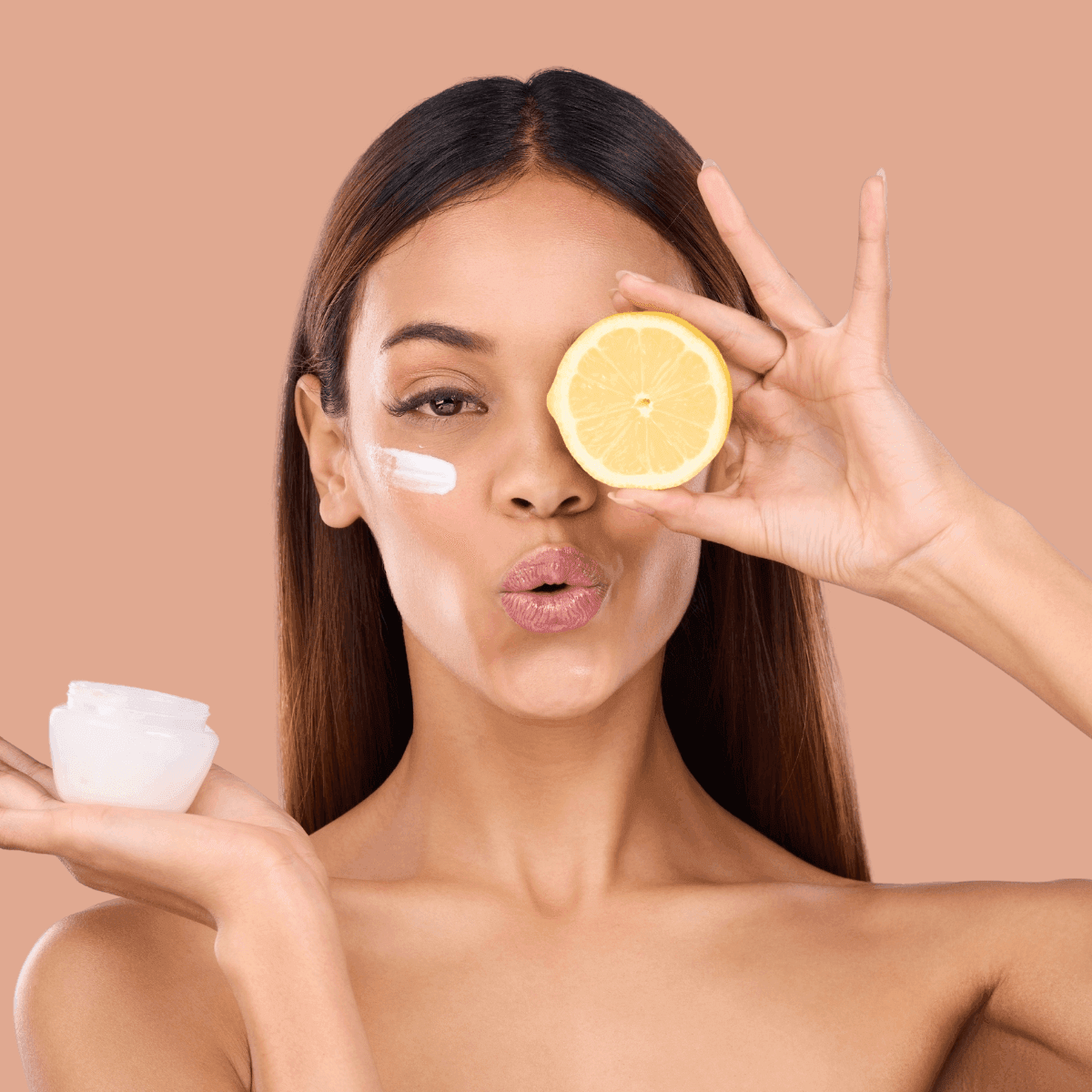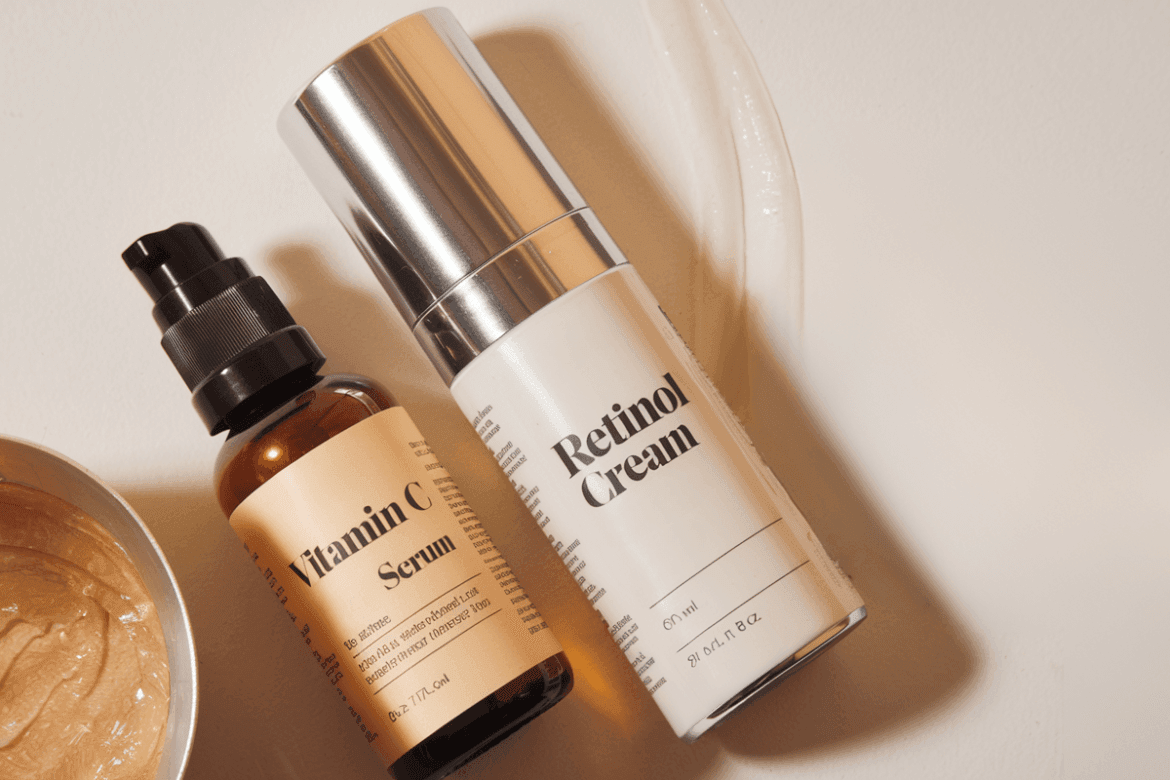When it comes to skincare, the sheer number of options can make your head spin faster than a spinning brush cleanser. Retinol and vitamin C are two ingredients that are often celebrated for their transformative benefits, but they serve different purposes and cater to various skin types and concerns. If you’ve ever wondered which one deserves a spot on your top shelf – or if both can work together in your routine – this article has got you covered!
Contents
Retinol: The Glow-Up Guru
Retinol is like the overachiever of the skincare world. It’s a derivative of Vitamin A and one of the most researched ingredients out there. Loved by dermatologists, it dives deep into your skin, encouraging faster cell turnover and revealing fresher, smoother skin beneath.
Think of it as a personal trainer for your skin cells, nudging them to renew themselves faster. The result? Fewer wrinkles, smoother texture, and clearer pores.

Benefits of Retinol
It fights fine lines and wrinkles like a pro: By stimulating collagen production, retinol helps reduce the appearance of those pesky crow’s feet and laugh lines. Over time, your skin feels firmer and looks more youthful.
Say goodbye to bumpy skin and hello to smooth texture: Retinol excels at unclogging pores, which can help minimize breakouts and leave your skin feeling velvety soft.
When to Use Retinol?
Retinol is best used at night because it can make your skin sensitive to sunlight. Think of it as a nocturnal magic worker, doing its best job while you sleep. Start slow – one to two nights a week – and gradually increase usage as your skin builds tolerance.
Pro tip: Pair it with a good moisturizer to combat any initial dryness or peeling.
Who is Retinol Suitable For?
Retinol is perfect for anyone dealing with aging concerns, acne, or uneven texture. However, if you have ultra-sensitive skin, eczema, or are pregnant, you might want to skip this one. There are gentler alternatives that work wonders for delicate skin types.
Vitamin C: The Brightening Hero
Vitamin C is like a burst of sunshine in your skincare routine. This powerful antioxidant works to protect your skin from environmental nasties while brightening your complexion and evening out skin tone.
It’s also your secret weapon against pollution and UV damage, neutralizing free radicals before they wreak havoc. In short, Vitamin C keeps your skin glowing and guarded.
Benefits of Vitamin C
It brightens dull skin and tackles dark spots: If your complexion feels lackluster or uneven, Vitamin C can help you achieve that lit-from-within glow. Say goodbye to stubborn pigmentation!
It shields your skin from environmental stressors: Pollution and sun exposure can speed up aging, but Vitamin C acts as a protective shield, keeping your skin healthier for longer.
When to Use Vitamin C?
The best time to use Vitamin C is in the morning to maximize its antioxidant properties. Apply it after cleansing and before your sunscreen for a double layer of protection against UV damage.
Remember: consistency is key. Use it daily for the best results, and watch your skin transform into a radiant masterpiece.
Who is Vitamin C Suitable For?
Vitamin C is for everyone – well, almost. If you’re battling dullness, dark spots, or early signs of aging, this ingredient is a must. It’s generally gentle, but those with very sensitive skin should start with a lower concentration to avoid irritation.

How to Decide: Retinol or Vitamin C?
Now, the million-dollar question: which ingredient should you choose?
- For acne-prone or textured skin: Retinol is your go-to. It’s like a detox for your pores, keeping breakouts at bay while smoothing out uneven texture.
- For dull or pigmented skin: Vitamin C is the champion. It brightens and evens out skin tone, making your complexion look healthier and more vibrant.
- For anti-aging concerns: Both work wonders! Retinol tackles fine lines and wrinkles, while Vitamin C boosts collagen production and prevents further damage.
If your skin is sensitive or reactive, start with Vitamin C. It’s generally milder, and you can work up to introducing retinol later. When in doubt, consult a dermatologist – they’ll help tailor a routine just for you.
Combining Retinol and Vitamin C: Can You Have It All?
Good news: you don’t have to choose one or the other! With the right approach, you can enjoy the benefits of both ingredients without compromising your skin’s health.
Can They Be Used Together?
Yes, but timing and layering are key. Both ingredients are potent and can irritate your skin if used incorrectly. The trick is to use Vitamin C in the morning and Retinol at night – this way, they won’t clash, and your skin reaps the rewards 24/7.
How to Combine Them Effectively
- Morning: Cleanse, apply Vitamin C serum, follow with moisturizer, and finish with sunscreen.
- Night: Cleanse, apply retinol (a pea-sized amount is enough!), and follow with a hydrating moisturizer.
- For beginners, alternate nights to allow your skin to adjust to retinol. You don’t want to go overboard and end up with redness or peeling.
Look for products formulated for sensitive skin if you’re combining these ingredients. Brands offering encapsulated retinol or stabilized Vitamin C can reduce the risk of irritation.
Tips for Maximizing Results
Both retinol and Vitamin C are skincare superstars, but they need proper care and patience to deliver their best.
- Always wear sunscreen. Retinol increases sun sensitivity, and Vitamin C is most effective when paired with SPF. A broad-spectrum sunscreen is non-negotiable.
- Introduce slowly. Start with one ingredient at a time, allowing your skin to adjust before adding the other.
- Hydrate, hydrate, hydrate. Both ingredients can be drying, so layer them with hydrating serums or moisturizers to keep your skin happy.
At the end of the day, retinol and Vitamin C aren’t just skincare buzzwords – they’re game-changers for anyone looking to level up their routine. While retinol is the ultimate anti-aging and acne-fighting ingredient, Vitamin C is your go-to for a bright and radiant complexion.
The best part? You don’t have to choose! By using them strategically – Vitamin C in the morning and retinol at night – you can enjoy the benefits of both without overwhelming your skin.
Remember, good skincare takes time and consistency. Be patient, listen to your skin, and don’t be afraid to experiment (responsibly!) to find what works for you. After all, your skin deserves nothing but the best.


